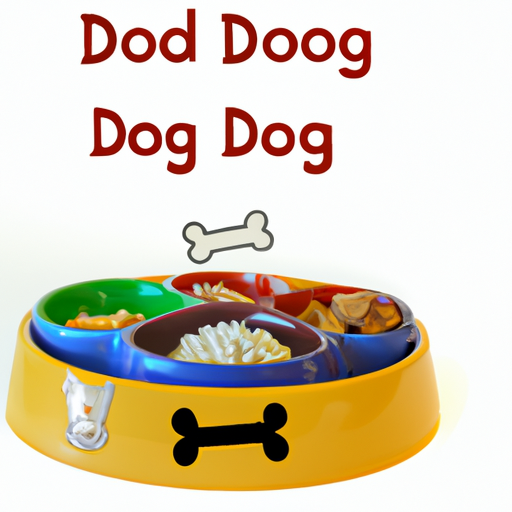Just like you take care of your own nutrition, taking care of your dog’s nutrition is just as important. Knowing and understanding the nutrients your dog needs will help you make informed decisions about their diet.
H2: The Importance of Balanced Nutrition for Dogs
Your dog is part of your family, and you want to make sure they’re as healthy and happy as possible. To do this, it’s vital to understand the importance of balanced nutrition. Dogs need a variety of nutrients, including proteins, carbohydrates, fats, vitamins, and minerals. These nutrients are necessary for a myriad of bodily functions such as growth, energy production, and maintaining overall health.
Just like humans, dogs have specific dietary needs that change throughout their lives. For example, puppies require more protein for growth, while senior dogs may need fewer calories but more fiber and certain vitamins.
H2: Essential Nutrients Your Dog Needs
Here are the main types of nutrients your dog needs:
- Proteins: Proteins are essential for growth, tissue repair, immune function, and making essential hormones and enzymes. Dogs can get protein from both animal and plant-based sources.
- Fats: Fats provide the most concentrated source of energy. They are essential for cell structure and function, and for absorption of certain vitamins.
- Carbohydrates: Carbohydrates provide energy and play a crucial role in intestinal health.
- Vitamins & Minerals: These are necessary for many of the body’s metabolic reactions. They are also crucial for nerve conduction, muscle contraction, and maintaining a healthy immune system.
| Nutrient | Purpose |
|---|---|
| Proteins | Growth, tissue repair |
| Fats | Energy, cell function |
| Carbohydrates | Energy, intestinal health |
| Vitamins & Minerals | Metabolic reactions, nerve conduction, muscle contraction |
H2: Choosing the Right Dog Food
You might be wondering how to ensure your dog gets all these nutrients. The answer is through a balanced diet. Many commercial dog foods are formulated to provide all the nutrients your dog needs. However, it’s crucial to choose high-quality dog food. Look for foods where the first ingredient is a source of animal protein, not a grain or filler.
When choosing dog food:
- Check the ingredient list
- Ensure it’s appropriate for your dog’s life stage (puppy, adult, or senior)
- Look for a statement that the food meets AAFCO (Association of American Feed Control Officials) nutritional standards
H2: The Role of Supplements in a Dog’s Diet
While a balanced diet should provide all the nutrients your dog needs, there are times when supplements can be beneficial. For instance, dogs with certain health conditions may require supplements. Always consult with your vet before starting any supplement regimen for your dog.
H2: Frequently Asked Questions
Q: Can I give my dog human vitamins?
A: Generally, it’s not recommended as dogs have different nutrient requirements than humans. Always consult with your vet.
Q: How often should I feed my dog?
A: It depends on the age, size, and health of your dog. Typically, adult dogs are fed once or twice a day.
Q: Should I cook for my dog instead of giving commercial dog food?
A: Cooking for your dog can ensure quality ingredients, but it’s challenging to provide a balanced diet this way. Consult with a vet or a pet nutritionist if you want to cook for your dog.
Remember, your dog relies on you for their nutrition. Understanding what nutrients they need is a significant step in providing the care they deserve.



